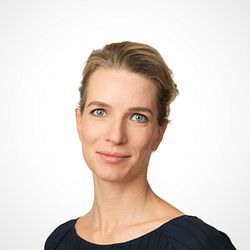

Nyheter
World-unique textile sorting plant put into operation in Malmö
04 NOV, 2020 08:00
The world's first large - scale plant for automatic textile sorting is now put in operation. At Sysav's facility in Malmö, a thirty meter long machine is in place. With a sorting capacity of 24,000 tonnes of textiles per year, it will revolutionize Swedish textile recycling and create new markets for textile waste.
- Better use of existing resources is Sysav's driving force. We are proud to contribute to the transition towards a more sustainable textile and fashion industry. With the Siptex facility as a new part of the value chain, other players can scale up their processes and textile recycling accelerate. It is a sustainable investment, both for Sysav and for the environment, says Peter Engström, CEO of Sysav.
Behind the innovation platform are several large Swedish textile, fashion and furniture companies, municipalities, charities, research institutes and authorities - a total of 20 actors under the leadership of IVL Swedish Environmental Institute. The sorting plant in Malmö is owned and operated by Sysav.
- This is the piece of the puzzle that has been missing in order to be able to recycle textiles on a large scale. We are very happy and proud that we, together with our partners, have taken this step towards more sustainable textile handling. It will provide environmental benefits and strengthen Sweden's position as a pioneer in innovation and the circular economy, says Anna Jarnehammar, Deputy CEO of IVL Swedish Environmental Institute.
The automated sorting is based on optical sensors that, with the help of near-infrared light, can sort textiles according to color and fiber composition with high precision. This makes it possible to handle large textile flows while at the same time producing textile fractions that match the needs of textile recyclers and textile companies.
- This has been a bottleneck before, the recycling techniques exist but the flows required have been lacking. In order to be able to recycle textiles on a larger scale, consistent quality and large volumes are required, and this is what automatic sorting can deliver. This is the link between collected textile waste and high-quality fiber-to-fiber recycling, says Erik Perzon, textile expert at IVL Swedish Environmental Institute.
In full operation, the plant have the capacity to sort 24,000 tonnes of textiles per year. The potential to increase textile recycling in Sweden is great. Today only a few percent of all textile waste is recycled. Most are thrown in the household waste and incinerated.
- An average Swede throws 8 kilos of textile in the waste bin every year, almost 200 tons of textile a day. It's a huge waste of resources. In addition to the climate impact, large amounts of water and chemicals are also used in textile production. If we can avoid new production by taking advantage of the textiles that are already on the market and keeping the textile fibers in the cycle for as long as possible, this is a huge win from a resource and sustainability perspective, says Erik Perzon.
For questions please contact
Anna Vilén, anna.vilen@sysav.se, tel. 0734-39 61 9
Erik Perzon, erik.perzon@ivl.se, tel. 010-788 65 70
Anna Jarnehammar, anna.jarnehammar@ivl.se, tel. 010-788 65 76
About the project
Siptex, the Swedish Innovation Platform for Textile Sorting, is funded by Vinnova and is a step 3 project within the Challenge-driven innovation program. It is led by IVL Swedish Environmental Institute and is carried out together with a broad consortium consisting of research institutes, authorities and actors from different parts of the textile value chain.
Senast uppdaterad 2020-11-04 17:43
